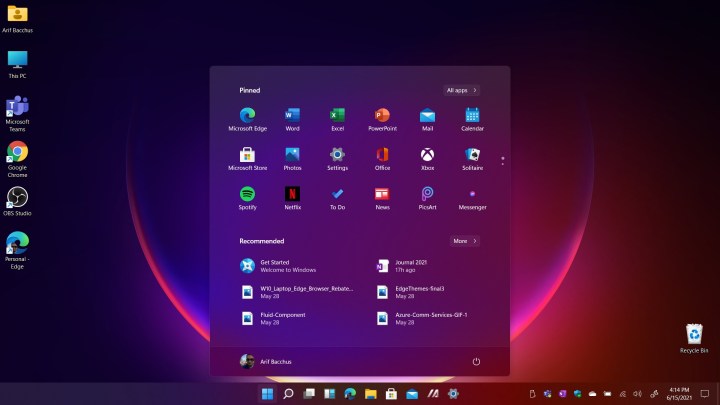You probably heard by now, but Windows 11 is coming. It was originally supposed to be revealed during Microsoft’s June 24 “what’s next for Windows” event, but the secret was leaked early. You can now install an unofficial preview version of it if you want, though we would not recommend doing so.
That means there are all kinds of questions about the cost of Windows 11, and how you can end up getting it once things become official. We’re here to help, with a look at why we think Windows 11 will probably be a free upgrade.

The answer to that question is in the numbers. Microsoft last reported that Windows 10 runs on 1.3 billion devices around the world. That’s a lot of PCs, and if Microsoft were to open up an option for Windows 10 users to “upgrade” to Windows 11 for free, then there are chances of more people using it.
There’s plenty of reason why they might want to do this too. Remember when Windows 10 was a free upgrade for Windows 8 and Windows 7? Microsoft wanted to push people to a newer operating system, at no extra cost. Yet, they also wanted to slowly phase out older versions of Windows, but keep it in place for those who need it.
We’re already seeing pieces of that put into play. An updated support page mentioned that support for Windows 10 will end in 2025, right in line with Microsoft’s 10-year Windows support cycle.
But there’s more evidence to suggest that Windows 11 will in fact be free. Those brave enough to install the leaked Windows 11 build were able to use it on existing Windows 10 PCs, without the need for a product key. The leaked ISO file for the build lets you “upgrade” Windows 10 to Windows 11, just like you could from Windows 8 to Windows 10.
Now, this is an unofficial release, so that could just be a coincidence. However, some coding in the configuration files even suggests Windows 7, 8, and 8.1 users will be able to upgrade at no cost.
The final piece of the puzzle has to do with “Windows as a service.” As you know, Microsoft offers twice a year updates to Windows 10. Recently, Microsoft started playing with “featured experience packs” that bundle in features separate from the Windows operating system. If Microsoft really wanted to make Windows 11 free for Windows 10 users, then it could also come as an optional featured experience pack, too.
This is all speculation for now. We’ll have to wait and find out more on June 24 when Microsoft is set to officially reveal the next version of Windows.


